Monty Don: The point of gardening? It's to find solace, to be happy, to make beauty, have fun and muck about. How you do it doesn't matter.
Monty Don, gardening writer and broadcaster, speaks to Country Life’s Tiffany Daneff about dogs with film presence and the lockdown recording process.
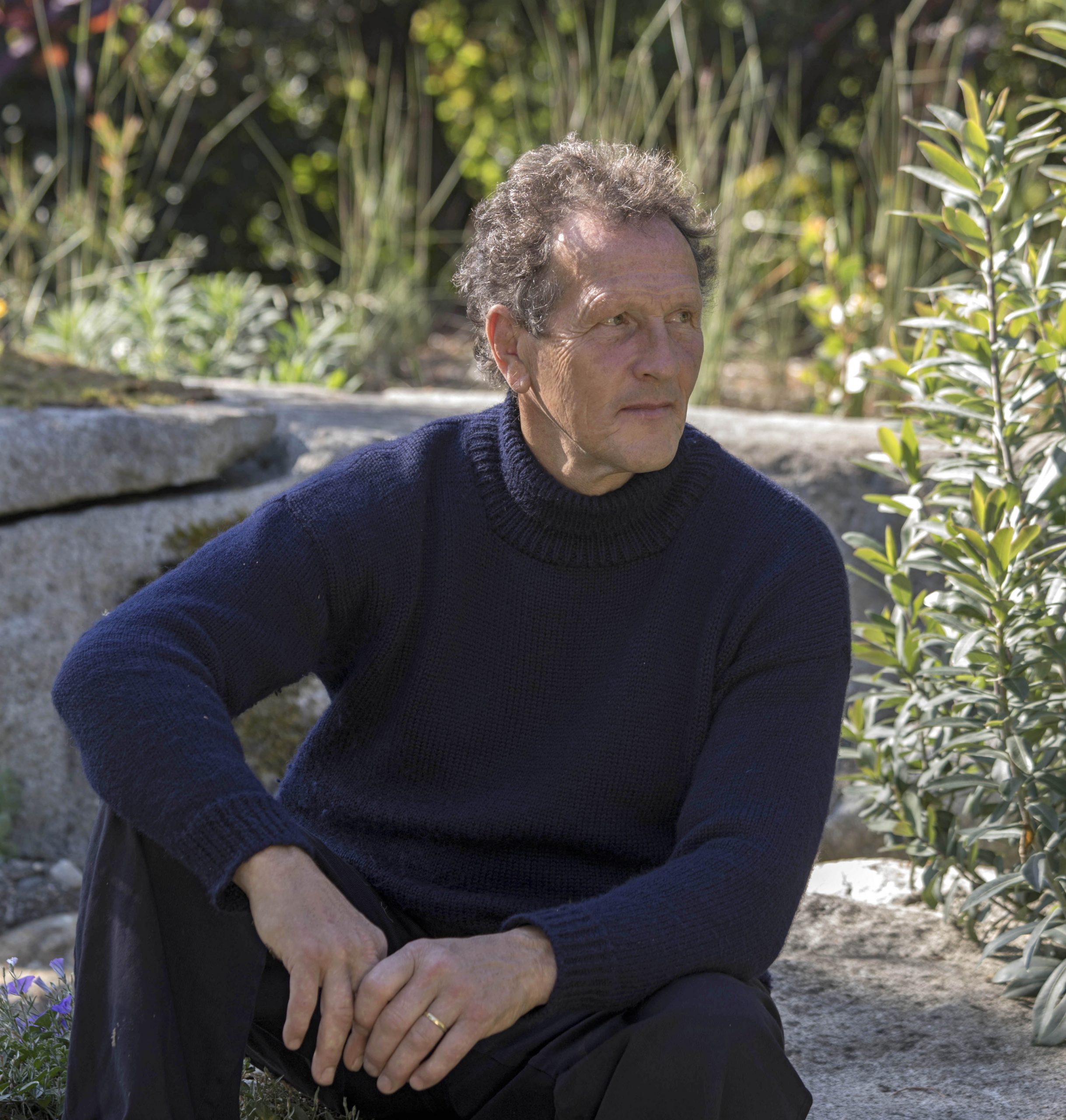

For many in the country, the gloriously sunny first months of lockdown offered a chance to spend more time in the garden, to get to know our Salvia pratensis from our S. nemorosa and to monitor the passing hours with shifts from hammock to lounger. Britain’s Gardener in Chief, however — in what is typical of the way he works — knocked out a mere 300,000 words, putting to bed two new books.
It has not been an easy year for Monty Don, whose much-loved golden retriever, Nigel, died in May aged 12. The nation mourned the loss of arguably the star of Gardeners’ World, who never left his master’s side — except to chase after a tennis ball. Nigel was a natural, on set all day long and more than content to take up his position and to repeat takes over and over again. By contrast, Nellie, the Dons’ other golden retriever, gets bored and disappears after about three minutes.
Monty’s new dog, Patti, is a Yorkshire terrier. She arrived as a tiny puppy about a year ago and became great friends with Nigel, who allowed her to crawl all over him. Now Patti is showing all the makings of a new star; as with Nigel, this is never set up to please the camera, but ‘she wants to be involved’.
A typical terrier, ‘she chases around all day and becomes bossy and contrary and grumpy in the evenings’. The family also has two miniature dachshunds, Brenda, 14 and smooth-haired, and 10-year-old, wire-haired Peggy, but, says Monty, they do not like being filmed.
Recording throughout lockdown has been quite a palaver, with the BBC crew in separate Portakabins permanently parked on the drive of the Dons’ Herefordshire home, Longmeadow, where the episodes are shot.
It took three days to set up the many miles of cabling, with a cameraman sitting in one cabin remotely manoeuvring the static cameras. Monty describes these as ‘mini Daleks on stands’ that can swivel and move up and down, but the upshot is that he has been unable to do the classic walk-and-talk shot.
‘I can’t move,’ he says, adding that the audience seems to rather like this old-fashioned, stripped-down look.
Sign up for the Country Life Newsletter
Exquisite houses, the beauty of Nature, and how to get the most from your life, straight to your inbox.
‘It’s very basic in some ways, but incredibly clever as the cameraman is looking at a screen and operating the cameras, rather like doing keyhole surgery with the director in a separate cabin operating three screens simultaneously.’
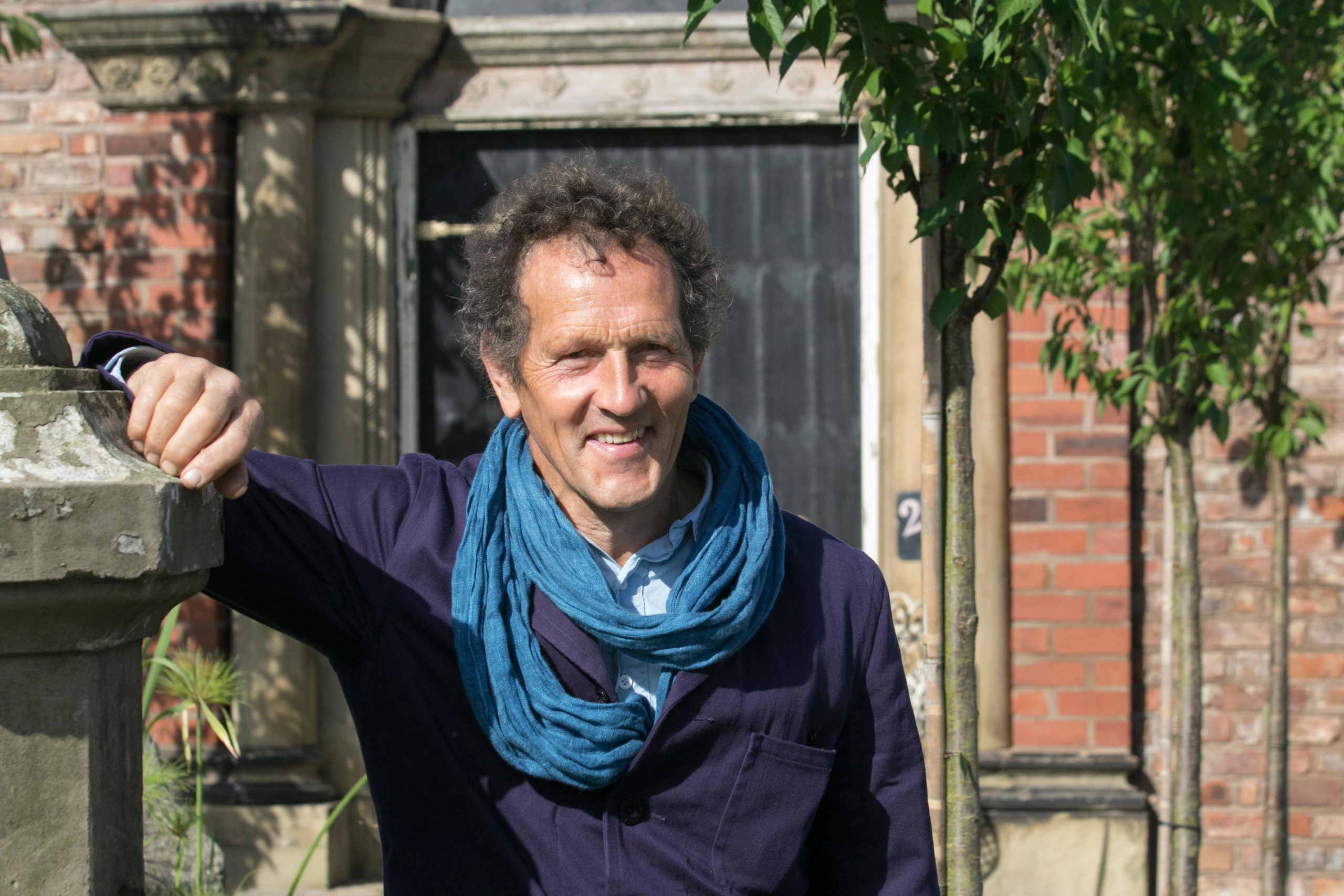
The lockdown has had its effect, nevertheless, with the cancellation of a speaking tour and the postponement of a 12-part series that would have been filmed in Europe. He has also had much less help in preparing the garden for each episode of Gardeners’ World, as the usual gardeners have had to be staggered so that no two people were working together.
However, such things count for nothing, he recognises, compared with families confined for months in small flats with no outdoor space.
‘I miss my friends and I miss my film crew. I have worked with them for 20 years and normally we spend two days a week tog-ether and weeks when we’re travelling,’ he says.
‘Most of all, I have really missed seeing my 15-month-old grandson, but he’s coming here tomorrow.’
The recent American Gardens three-part series for the BBC saw Monty Don and photographer Derry Moore partner up for three separate trips around the US last year, covering, broadly, the South, the North-East and the West.
What was his most long-lasting impression? ‘I always become evangelical when I get back,’ he reveals.
‘The very best of American can-doism is intensely attractive. I defy anyone not to have their blood warmed by that.’
"What you get from America is a much closer relationship with wilderness... That relationship with Nature and the natural world is genuinely on the edge of what is garden and what is not garden"
Seeing a country and its anthropology through gardens is completely outside his Gardeners’ World work and something he relishes.
‘What you get from America is a much closer relationship with wilderness — what we call prairie planting is not prairie planting at all, it’s grass borders,’ he says.
‘There’s a sense that the real prairie is only a hop and a skip and a jump away, or the real forest is miles and miles of forest. It’s this idea of frontiership.
‘That relationship with Nature and the natural world is genuinely on the edge of what is garden and what is not garden. We don’t really have that in Europe. The nearest we get is Derek Jarman making a garden on the beach at Dungeness. When you are gardening in conditions that are nearly impossible, you become truly creative.’
The counterbalance to this, he adds, is the stifling uniformity of the American front garden: ‘The lawns running down to the sidewalk and the picket fence. That contrast is huge and completely fascinating.’
Most of all, he admires the Americans’ uninhibited love of innovation. We Brits, on the other hand, still tend to re-create and reform our cultural inheritance when it comes to gardens: ‘We are not, by and large, comfortable with the genuinely modern.’
His main criticism about the British approach to gardening, however, is our focus on how to do it and not nearly enough on what we’re doing. ‘The whole point about gardening is not to learn how to garden, but is to find solace, is to be happy, is to make beauty, is to have spiritual communion, is to have fun and muck about. How we do that really, really doesn’t matter.’
My Garden World: The Natural Year by Monty Don (Hachette) and American Gardens by Monty Don and Derry Moore (Prestel Verlag GmbH & Co KG) are published in September 2020.
Monty Don’s favourite things
- Where is your favourite place in Britain? The Llanthony valley in the Black Mountains, Wales.
- Book? The Goshawk (T. H. White).
- Music? I can’t imagine life without the Beatles or Dylan, but it’ll have to be the Brandenburg Concerto (J. S. Bach).
- Food? Breakfast with yoghurt and fruit from the garden, followed by fresh eggs and homegrown chillies with sourdough toast. Tea, not coffee.
- Dinner guest? Rose Gray (chef and writer, who died in 2010) — I do miss her.
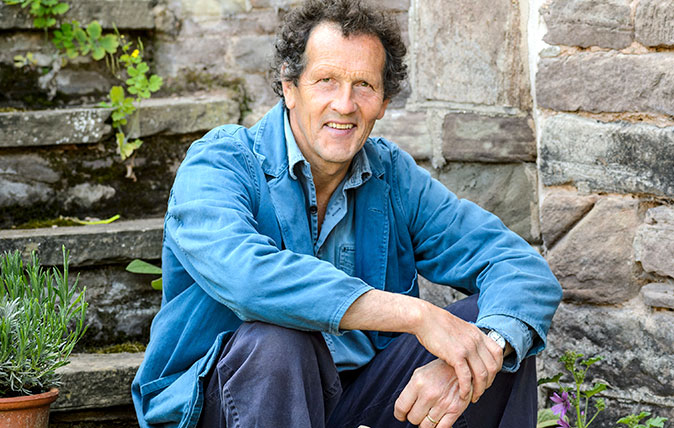
Monty Don: How to stop worrying and learn to love gardening in November
November can be a depressing time for gardeners – but not if you dive in and make the best of it,
Country Life is unlike any other magazine: the only glossy weekly on the newsstand and the only magazine that has been guest-edited by HRH The King not once, but twice. It is a celebration of modern rural life and all its diverse joys and pleasures — that was first published in Queen Victoria's Diamond Jubilee year. Our eclectic mixture of witty and informative content — from the most up-to-date property news and commentary and a coveted glimpse inside some of the UK's best houses and gardens, to gardening, the arts and interior design, written by experts in their field — still cannot be found in print or online, anywhere else.
-
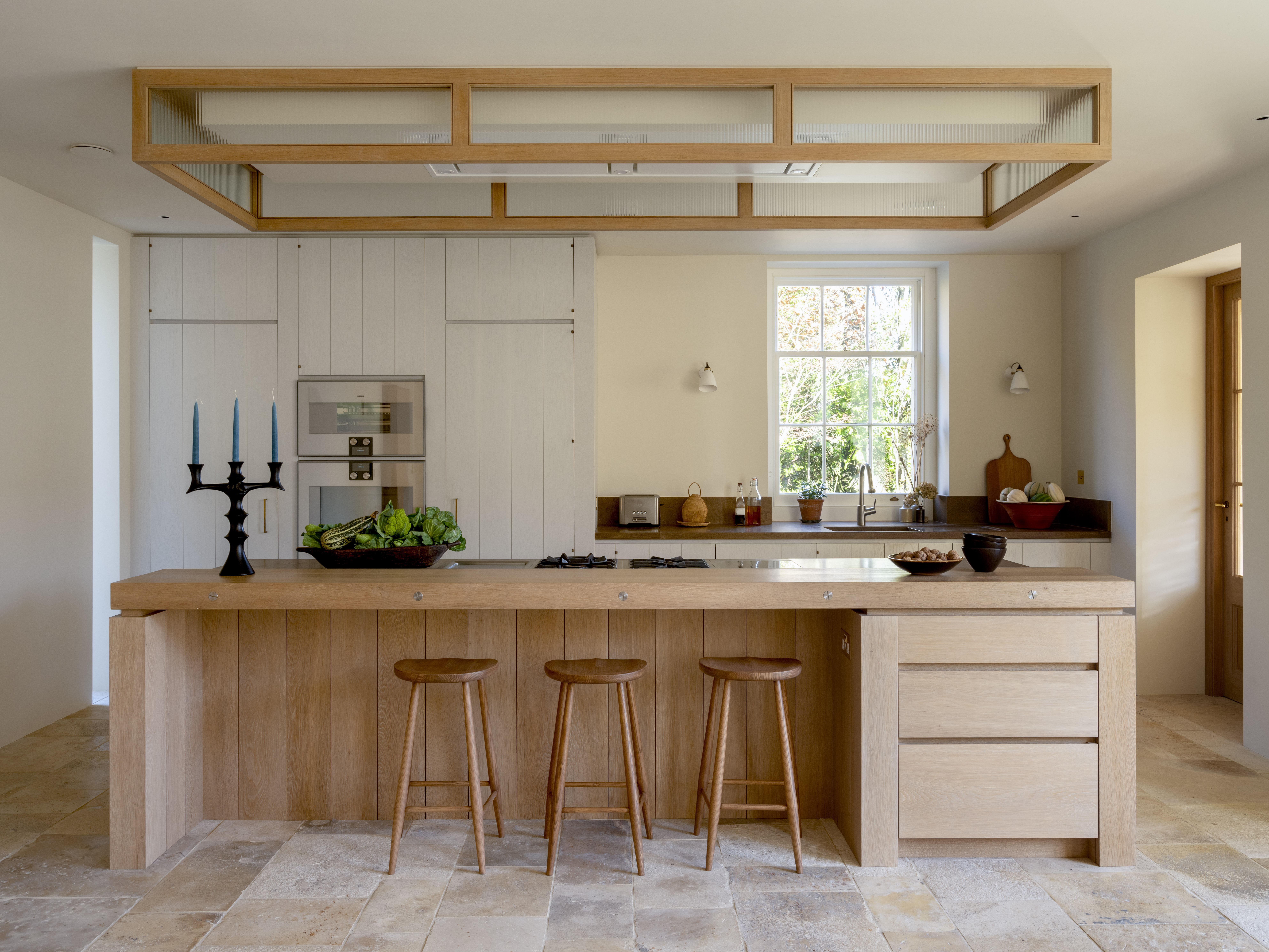 Designer's Room: A solid oak French kitchen that's been cleverly engineered to last
Designer's Room: A solid oak French kitchen that's been cleverly engineered to lastKitchen and joinery specialist Artichoke had several clever tricks to deal with the fact that natural wood expands and contracts.
By Amelia Thorpe
-
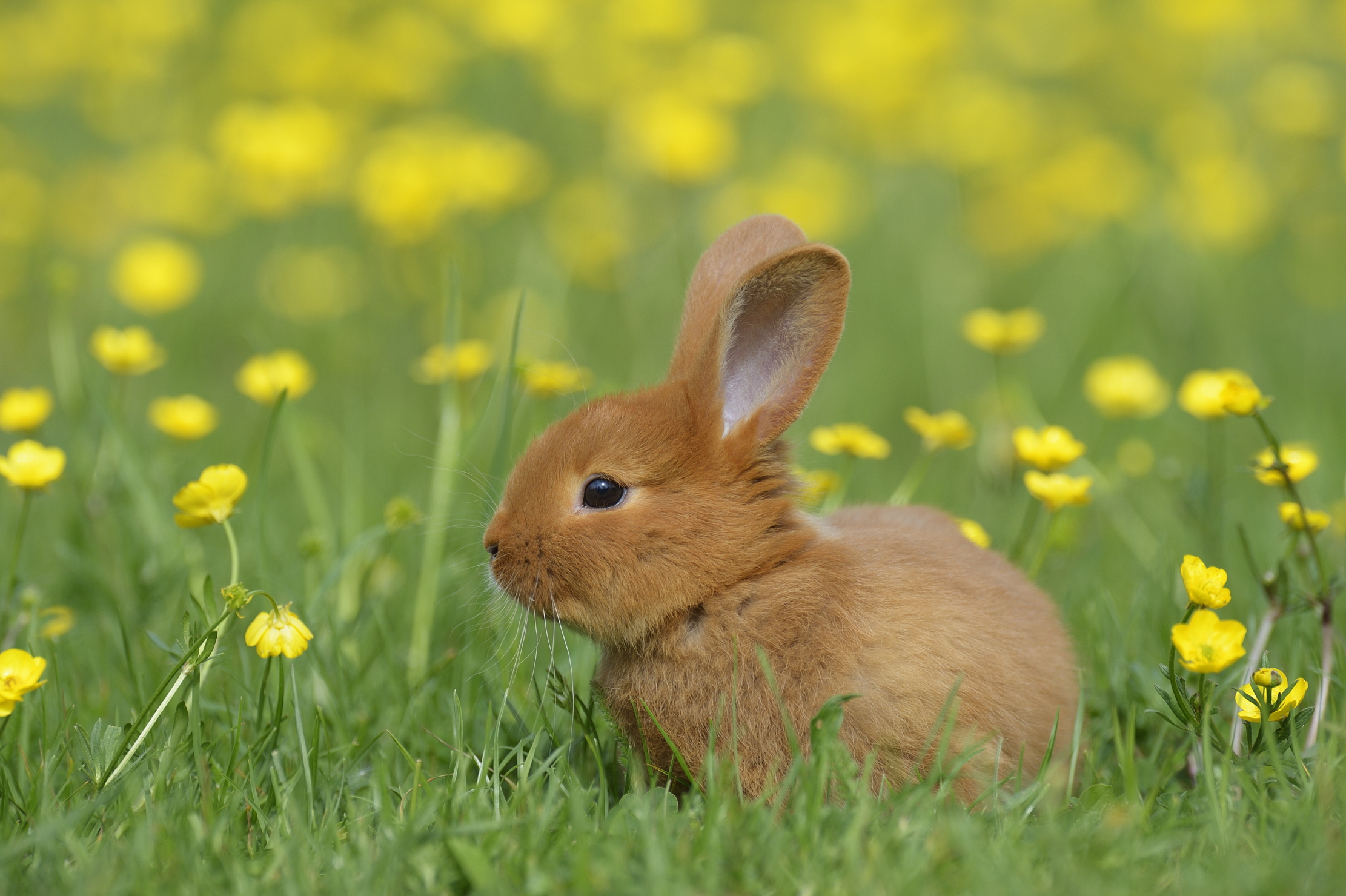 Chocolate eggs, bunnies and the Resurrection: Country Life Quiz of the Day, April 18, 2025
Chocolate eggs, bunnies and the Resurrection: Country Life Quiz of the Day, April 18, 2025Friday's quiz is an Easter special.
By James Fisher
